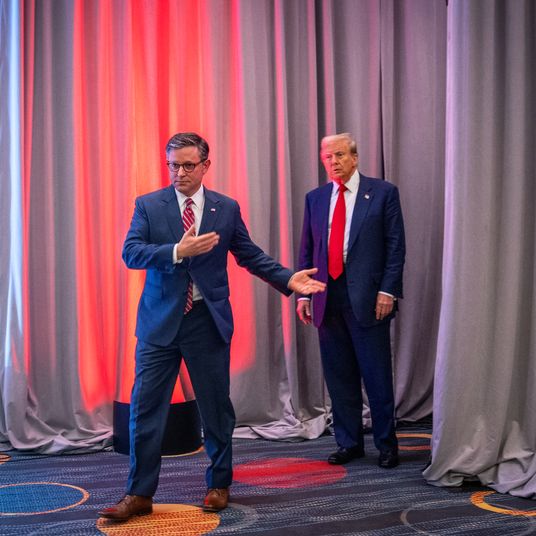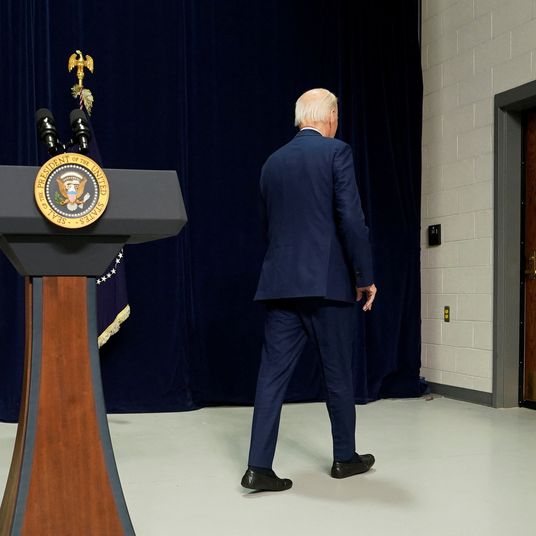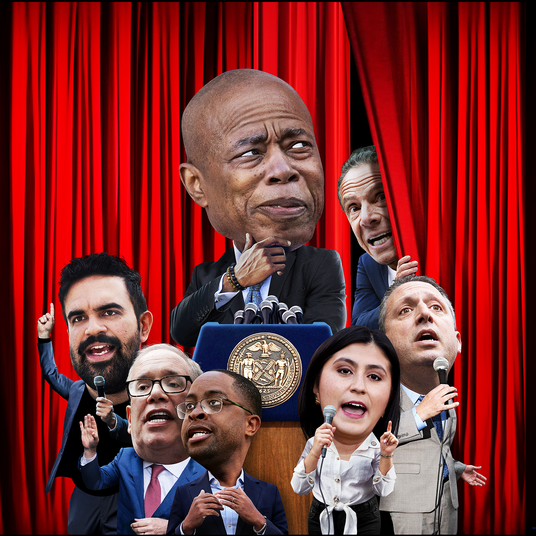
It has been obvious throughout Donald Trump’s second impeachment trial that the House managers have been appealing to the personal experience of senators on the terrifying day of the MAGA assault on the Capitol. In some respects, they are appealing to congressional pride and self-respect. The mob Trump incited wasn’t going after antifa or self-identified “socialists” or some Midwestern governor. When the managers again and again noted that Trump had been indifferent to the fear and suffering of members of Congress and their staff experienced on January 6, they likely wanted to inspire shame in his Republican enablers for failing to stand up for their own institution.
But in a broader sense, any presidential impeachment is likely to represent a last-gasp act of self-defense for the legislative branch to counteract the president’s immunity from prosecution and and his vast abilities to circumvent Congress. The Constitution endows Congress with the power of impeachment and removal (and a ban on future office-holding, as in this case) as a way to police the separation of powers without which presidents could easily become tyrants. In the impeachment case where a president came closest to conviction, Andrew Johnson had defied not only the Tenure of Office Act aimed at keeping him from firing Abraham Lincoln’s secretary of war, but acted relentlessly to subvert the entire congressional Reconstruction project which was in turn essential to vindicating the vast sacrifices made during the Civil War.
In the more than a century-and-a-half since Johnson’s impeachment, the relative power of the executive branch at has steadily increased at the national legislature’s expense, to regular laments from members of Congress from both parties and every persuasion. Impeachment as a potential instrument of congressional self-defense has accordingly become more significant.
Even before 2020, Trump was notorious for thumbing his nose at any effort by coordinate branches of the federal government to rein in his policies or conduct (“I have an Article II that says I can do whatever I want,” he famously said). Part of the reason he was impeached the first time around was his serial defiance of congressional subpoenas for documents and administration testimony on subjects squarely within Congress’s jurisdiction.
More to the point, in the runup to the events of January 6, Trump systematically tried to usurp a process set out in the Constitution and in the Electoral Count Act of 1887 whereby the states certified election results, the Electoral College cast votes, and then Congress confirmed them (so long as the states certified them and resolved judicial challenges, which all 50 of them had this cycle).
Most dramatically, Trump personally tried to convince Vice President Mike Pence to abuse his authority as Senate president under the Electoral Count Act to completely subvert the routine tabulation and confirmation of the results on January 6. And knowing infallibly that the challenge he insisted on was going to fail, Trump expressed his ultimate contempt for Congress by dispatching his followers down Pennsylvania Avenue on January 6.
Presented with such effrontery, Congress has literally no recourse other than impeachment and conviction. Yes, Senate Republicans can hide behind the minority view that an ex-president is immune from the constitutional remedy of a ban on holding future office. But self-respect should demand that they make it clear they would convict Trump if they could. Otherwise their fear of the man and the very mob he sent their way ought to be permanently emblazoned on their records like a red badge of cowardice. And after Trump’s acquittal, Democrats are very likely to do just that on future campaign trails.






























